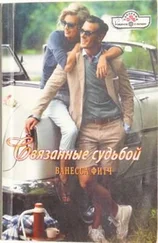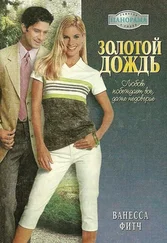A hand-lettered sign indicated ROOM 145, TIKHVIN SOVIET WORKERS’ AND PEASANTS’ WOMEN’S CLUB. LECTURE TONIGHT. Oh, were there any happier two words in the Russian language?
The Women’s Club occupied two cold rooms toward the end of the hall, past the printing press and a classroom in which a potato-shaped woman was wearily teaching people to read. Her adult students sat, fist to forehead, as if in pain with the passage of a new idea, like they were passing a kidney stone.
In the first room of the Women’s Club, a girl in a white scarf with a face like a pancake handed out tea with saccharine. A number of children played quietly under the eye of two other girls—too weak to make much of a racket. In the second room, fifty women assembled on benches and sills of the windows, some with babies in arms—an impressive turnout. The panes were frosted with their breath. The soviet clearly didn’t consider the Women’s Club worth sparing the firewood for. I saw the woman in the felted hood who had told the Bolshevik where I lived, and stayed away from her. The woman who’d had the little girl in the queue waved me over, opened a space on the bench for me.
“Get your maternity ration after,” she advised.
Well, that was something to look forward to.
The Bolshevik woman came out with an armload of papers, wearing her coat against the cold, a red kerchief on her head, self-consciously echoing the Communist poster on the wall behind her. She rose to the lectern, puffing up to a round of applause.
“The commissar’s wife. Alexandra Sergeevna,” the woman next to me whispered. Followed by a derisive exhale.
Sergeevna cleared her throat and opened a pamphlet. “Last time, we talked about the four categories of housework doomed to extinction. Does anyone remember what they were?”
I worried a loose tooth—lower left canine. There was no hope of finding a dentist—anyone with any medical training was doing surgery at the front. I’d told Korsakova about it, but she’d shrugged, saying a woman lost a tooth for every child, it was normal. How privileged I’d been, I hadn’t even understood the distance between my life and that of an ordinary woman. Now I would lose a tooth. Now I would truly become what I’d only been pretending to be, a nineteen-year-old proletarian on my way to becoming an old woman as the baby leached the precious calcium from my bones. I was being eaten alive. The Drops of Milk campaign would be a godsend. I shouldn’t have waited this long.
“Four categories of housework are doomed to extinction with the victory of Communism,” she read. “In the future, the Soviet working woman will be surrounded by the same ease, hygiene, and beauty as the rich once had under Capitalism. Instead of spending her free hours in a private kitchen and laundry, she will have public restaurants and communal kitchens, collective laundries and clothes-mending centers, at her disposal.” She received a polite, apple-polishing round of applause. “Questions?”
A woman perched on the windowsill raised her hand. She had strange shiny blue eyes that contrasted oddly with her drawn, hungry face. “How’ll they know whose clothes are whose if we all take ’em to the same place?”
Sergeevna frowned, blinked. It was not a question she’d expected, and clearly not one she welcomed. “I don’t understand.”
I actually felt sorry for this officious woman, trying to inspire these tired Fraus into envisioning a new socialist future, and having them worry about how they were going to reclaim their clothes at the nonexistent repair center. Women who had never taken their clothes to a laundry or a tailor, they couldn’t imagine such an exotic exchange.
“At the mending center,” the woman tried to explain. “How will they know whose are whose?”
The commissar’s wife let out an exasperated sigh. “They’ll fill out a ticket for you. And you’ll bring it when you pick up the clothes.”
“What if I lose the ticket?”
The speaker leaned on her stack of printed material and pointed to the poster behind her, a firm-faced Soviet matron before a series of upright shapes that could have been smokestacks and could have been rifles, the whole thing boldly titled FREE WOMEN BUILD SOCIALISM. “What’s the point in having a hundred women at home washing their own individual clothes, when five women could have a paying job working in that laundry? With rations and a crèche. Leaving ninety-five women free to contribute to society. Capitalism outmoded the family as a unit of production. Communism makes its domestic arrangements obsolete .”
But the words she was using were meaningless to them: unit of production, domestic arrangements. She was making sense, but not to this audience.
She opened a pamphlet, smoothed down the pages. “What of the mothers?” she read. She pointed to another poster behind her on the wall. CHILDREN ARE EVERYONE’S RESPONSIBILITY. On it, two women, a peasant and a worker, stood with their children, a barn behind one, a factory behind the other.
“Society needs more workers and rejoices in the birth of your child,” she valiantly read on. “You don’t have to worry about its future. Your child will know neither hunger nor cold. Society will feed, bring up, and educate the child. The joys of parenthood will not be taken away from those who are capable of appreciating them. But the old type of family is withering away, not because it’s being forced out of existence but because it is no longer necessary. The task of raising children is passing into the hands of the collective.”
I tried to think of a country where people were free of the family. Of Father who leads and Mother who bows. Imagine that kind of freedom for women. Poor beaten Faina could leave her husband and make a life for herself.
“It used to be that you didn’t worry about my children, and I didn’t worry about yours,” she explained. “But in our socialist society, any child in need is everyone’s responsibility. Every mother’s welfare. No mother, married or single, will be left on her own to care for her children.”
The women shifted nervously, not completely ready to accept that they need not devote their lives to wiping children’s noses and washing their clothes, that it wasn’t the highest function of womanhood. A woman in a patched jacket stood. “I work over at the lumberyard, and I pay a third of my wages to a woman who watches my kids. When are we getting one of those kindergartens here, like you said last time?”
The commissar’s wife flushed, that someone noticed there was a difference between the dreams of the spacemen and the facts of life in the streets and squares of Tikhvin. “We’re not magicians, Comrade. I don’t have to tell you we’re in the middle of a civil war. We already give the children hot meals in school. Step by step. Any other questions?” She opened her book, clearly impatient to move on.
Another hand came up. “They say they’re going to take the children away from the mothers. Is that true? Who can better care for a child than its own mother?”
Sergeevna’s flat cheek flexed. “We’re not taking children from their mothers, Comrade. We’re offering the woman an opportunity to engage in the economic and political life of the socialist society. We don’t need a hundred women each cooking dinner and ministering to individual children. It’s economically regressive, when six women could free the rest for meaningful work.”
These women didn’t understand that the soviet was offering working-class women the labor arrangements that aristocrats had known for centuries. When was the last time an upper-class Russian woman raised her own children? Vera Borisovna certainly hadn’t. I would be the first woman in my family to attempt it—my useless, incompetent self. I remembered the mess I’d made at Faina’s, just trying to diaper her baby. We’d all been raised by governesses, tutors, and nannies, but it was a shocking, foreign idea among these peasants and workers, these provincial petite bourgeoisie. To release women from their position as family serfs, there had to be some way to care for the children. Nothing was going to change without it. I had been so ready to dislike this woman, but now I felt sorry for her. I couldn’t help but see what a hard job she had ahead of her, trying to get the benighted womenfolk of Tikhvin to understand that there was more to life than motherhood and wifedom and pregnancy every spring.
Читать дальше












